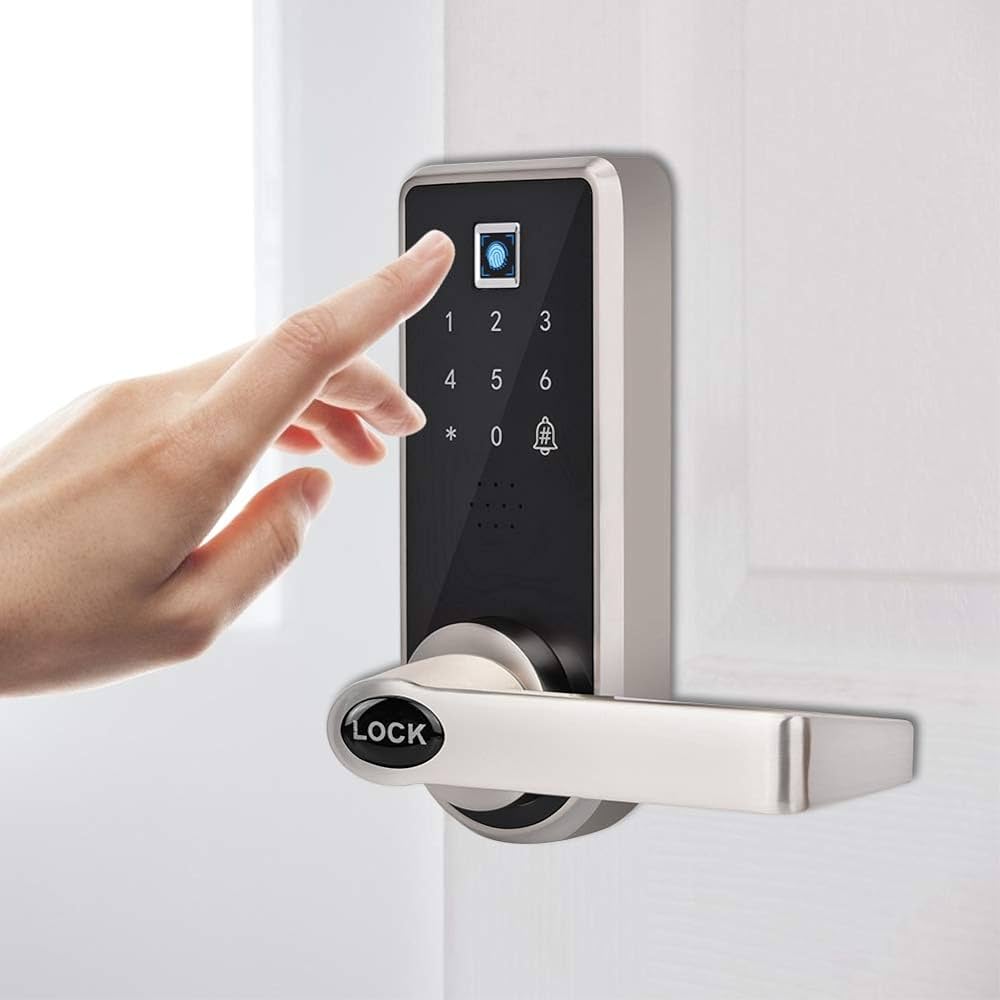Ever wondered how long your smart lock will keep your home secure? Smart locks have become a convenient addition to modern households, but their longevity can vary. As you integrate this technology into your daily routine, understanding the lifespan of these devices becomes crucial. From environmental factors to usage patterns, various elements can impact how long your smart lock functions effectively. So, before you consider replacing or upgrading your current smart lock, it’s essential to grasp the factors that influence its longevity. Check Smart Lock in Hyderabad, Gurgaon and Delhi
Factors Affecting Smart Lock Lifespan
- To maximize the lifespan of your smart lock, it’s crucial to consider various factors that can impact its durability and performance. Environmental conditions play a significant role in determining how long your smart lock will last. Extreme temperatures, humidity, and exposure to elements like rain or direct sunlight can affect the internal components of the lock, leading to malfunctions or a shorter lifespan. It’s essential to install your smart lock in a location that’s sheltered from such environmental factors to ensure optimal performance over time.
- Moreover, the manufacturing quality of the smart lock is another critical factor in determining its longevity. Smart locks made with high-quality materials and precision engineering are likely to outlast those of inferior quality. Components such as the locking mechanism, circuitry, and outer casing should be well-built and durable to withstand daily use and potential wear and tear. When choosing a smart lock, always opt for reputable brands known for their quality craftsmanship to ensure a longer lifespan for your device.

Average Lifespan of Smart Locks
- Considering the impact of environmental factors and manufacturing quality on smart lock longevity, understanding the average lifespan of smart locks becomes crucial for making informed decisions about their durability. The average lifespan of smart locks typically ranges between 5 to 10 years. This estimate is influenced by factors such as usage frequency, quality of installation, maintenance practices, and the specific model of the smart lock.
- When evaluating the longevity of a smart lock, it’s essential to consider the security features it offers. High-quality smart locks with robust encryption protocols and advanced authentication mechanisms tend to have a longer lifespan due to their ability to withstand evolving security threats.
- Compatibility issues can also impact the average lifespan of smart locks. Changes in technology or software updates may render older smart locks incompatible with newer devices or applications, reducing their effectiveness over time. To maximize the lifespan of your smart lock, ensure compatibility with your existing smart home ecosystem and regularly update its firmware to address security vulnerabilities and enhance performance.
Signs It’s Time to Replace
- When assessing the condition of your smart lock, keep an eye out for indicators that signal it may be time for a replacement. One key sign to watch for is if your smart lock starts experiencing malfunctions frequently, such as not responding to commands consistently or having issues with connectivity. These issues can indicate that the internal mechanisms are wearing out and may compromise the overall security of your smart lock system. Additionally, if your smart lock is no longer receiving software updates or compatible with the latest technology, it may be time to consider upgrade options.
- Another crucial factor to consider is security risks. If you notice any unusual behavior, such as your smart lock unlocking on its own or showing signs of tampering, it’s essential to address these concerns promptly. Outdated smart locks may lack the necessary security features to protect against modern hacking techniques. To ensure the safety of your home or property, staying vigilant and proactive about potential security risks is paramount. If you encounter any of these signs, it’s advisable to explore replacing your smart lock with a more secure and up-to-date option.
Maintenance Tips for Prolonged Use
If you want your smart lock to last longer and function optimally, implementing regular maintenance practices is key. Two crucial aspects of maintaining your smart lock are battery replacement and firmware updates.
- Firstly, ensure you replace the batteries in your smart lock according to the manufacturer’s recommendations. Typically, smart locks will provide low battery notifications, but it’s advisable to proactively change the batteries before they completely deplete to prevent any lockouts. Regularly checking and replacing the batteries will guarantee uninterrupted functionality.
- Secondly, staying up to date with firmware updates is essential for the security and performance of your smart lock. Manufacturers often release firmware updates to address security vulnerabilities, improve functionality, and enhance compatibility with other devices. Check the manufacturer’s website or app regularly for any available updates and follow the instructions provided to ensure your smart lock is running the latest software version.
Future Trends in Smart Lock Technology
- To anticipate the evolution of smart lock technology, it’s crucial to monitor the advancements in biometric authentication and integration with home automation systems. Voice recognition and biometric authentication are shaping the future of smart locks. Voice recognition technology allows users to unlock doors using specific voice commands, offering a hands-free and convenient access method. Biometric authentication, which includes fingerprint scanning and facial recognition, adds an extra layer of security by identifying individuals based on unique biological traits. These advanced authentication methods enhance security and provide a seamless user experience.
- Integration with home automation systems is another key trend in smart lock technology. Smart locks are increasingly being designed to work harmoniously with other smart devices in a home network. This integration enables users to control their locks remotely, receive real-time notifications, and automate entry permissions for guests or service providers. As smart homes become more prevalent, the synergy between smart locks and home automation systems will continue to advance, offering users a more connected and secure living environment.
Conclusion
In conclusion, the lifespan of smart locks varies depending on factors like usage, maintenance, and technology advancements. On average, smart locks can last anywhere from 5 to 10 years. It’s important to keep an eye out for signs of wear and tear, such as malfunctions or connectivity issues, to know when it’s time to replace your smart lock. By following proper maintenance tips and staying informed about the latest trends in smart lock technology, you can ensure the longevity of your smart lock system.


